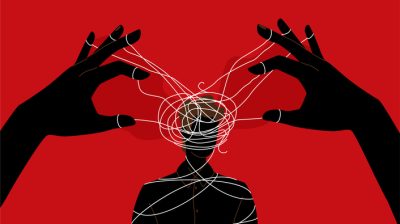Knowing the signs of neglect
Neglect can be difficult to identify, but there are a number of signs you can look out for.

Neglect is a form of abuse that involves people not having their basic needs met by a caregiver. It can happen to children and young people and as well to adults who are vulnerable or who rely on someone else to meet their needs.
Not having these needs met causes consistent harm to a person’s physical and mental well-being. For children and young people, it also negatively impacts their physical and mental development. In childhood, neglect is often associated with poverty but not necessarily caused by it. It can also be linked to domestic violence and/or to parents dealing with substance misuse, mental health difficulties, or disability. Neglect of adults with additional needs can be the result of elder abuse or abusive family dynamics.
In this article, you will find information that covers:
The signs of neglect
What to do if you think someone is neglecting you or someone else
How to get support
Signs of neglect
Neglect happens when someone responsible for providing care fails to look after a person adequately. This can take different forms, but someone responsible for your care may be neglecting you if they:
- Do not have any food in the home
- Do not give you full meals or restrict your food intake
- Do not bring you to the doctor, even when you’re seriously ill or have an important appointment to attend
- Do not give you medication, either at all or consistently, when you need it
- Leave you alone for long periods of time or deny you opportunities to socialise (in the case of children, being left without parental supervision or without seeing their parents)
- Do not provide enough clothes or suitable clothes, such as not providing a jacket for winter
- Do not have enough furniture in the home, such as not having a bed or bedding
- Do not help with your personal hygiene, leading to unwashed hair or a messy or dirty appearance
Someone responsible for your care may be neglecting you when situations, including some of those outlined above, are a consistent part of your life.
What to do if you think you or someone you know is being neglected
If you think you are being neglected, or that someone you know is, the first step is to talk to someone you trust. This could be a teacher, youth worker, doctor or coach, or maybe another family member. You should let them know about your concerns.
It is important to remember that neglect, like all forms of abuse, is never the fault of the person being victimised. Everybody deserves to live with dignity. If someone is abusing you, try to remember that the abuse is not your fault. It’s important not to internalise the harmful messages that abuse can send, such as making you feel unworthy or somehow responsible for the abuse.
If a child or young person is being neglected
If you, or the person concerned, is under the age of 18, you can contact your local Tusla duty social worker to report the case of neglect. Alternatively, if you’ve already discussed the case with someone else (e.g., a teacher, healthcare worker, community worker), you can ask that person to report the neglect to Tusla on your behalf.
In some cases, the person neglecting you may threaten to harm you if you tell anyone what’s happening. This is a way of frightening you into silence. If you tell the Gardaí or social worker, they can help to make arrangements that you and other family members are safe from harm.
Letting someone know that a family member is abusing or neglecting you doesn’t mean that social services will take you away from your family. Social services will work to keep you safe from abuse by supporting your family to meet your needs while helping you stay with your family whenever possible.
In cases where a family member is abusing you or someone else, social services can help you find a safe place to stay, away from the person causing the abuse. In some cases, this may involve helping the person find a place to stay outside the family home.
Getting support
Even after the abuse has stopped you might have emotional or self-confidence problems. It is important to give yourself the time and space to start your mental health recovery to help you heal from your experiences.
Finding help for neglect
There are a range of support services available to people experiencing neglect. Some of these include:
- If you feel you are in immediate danger, call 112 or 999 to contact the Gardaí or if you are not in immediate danger, you can go to your local Garda station in person to report domestic abuse or coercive control. If you feel it is unsafe to make a phone call, you can text the Emergency Services by sending an SMS/Text message to 112
- Tusla is responsible for child protection and welfare in Ireland. Concerns around child neglect should be reported to Tusla directly or your nearest social worker
- The National Counselling Service (NCS) provides free counselling to people aged 18 or older if you have experienced childhood abuse or neglect. You can self-refer to your nearest centre
- Childline offers a helpline and online support, offering advice and support to people under 18 years of age, available 24/7. Contact them on 1800 66 66 66
If you or someone you care about has experienced or is experiencing abuse, you might not want to talk about it to someone you know. In that case, an anonymous support line like our 24/7 text service, Text About It, might be helpful. Opening up about your mental health can be difficult and scary, especially if you haven’t done it before. For many people, however, talking to someone can be a really important step.
For more information on reporting abuse, including neglect, visit the website of Safeguarding Ireland.
Feeling overwhelmed and want to talk to someone?
- Get anonymous support 24/7 with our text message support service
- Connect with a trained volunteer who will listen to you, and help you to move forward feeling better
- Whatsapp us now or free-text SPUNOUT to 50808 to begin.
- Find out more about our text message support service
If you are a customer of the 48 or An Post network or cannot get through using the ‘50808’ short code please text HELLO to 086 1800 280 (standard message rates may apply). Some smaller networks do not support short codes like ‘50808’.






